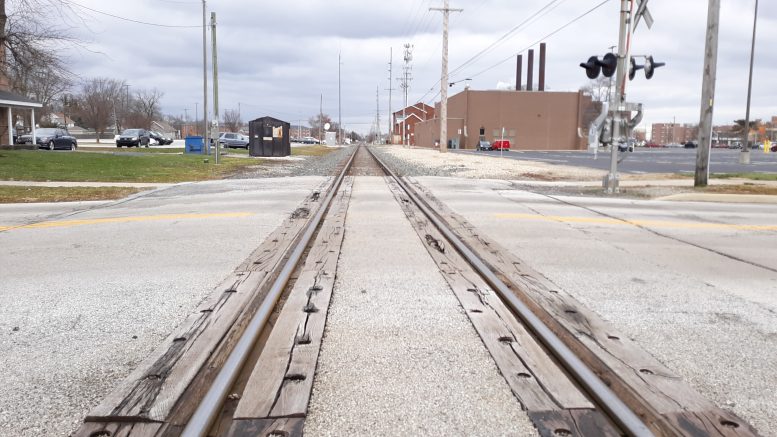By JAN LARSON McLAUGHLIN
BG Independent News
On the other side of Ohio, residents of East Palestine are living with the aftermath of the Norfolk Southern train derailment that released toxic chemicals into the community.
That got Bowling Green City Council member Bill Herald wondering how well his city is prepared for similar types of catastrophes. With a CSX railroad track cutting north-south through the city, how vulnerable is Bowling Green to such accidents?
During Tuesday evening’s City Council meeting, Herald posed the question to Mayor Mike Aspacher, who said he asked those same questions of the city’s first responders.
“Bowling Green residents should feel comforted,” the mayor said. All city departments – police, fire, electric, water and public works – have “very detailed emergency operations plans,” he said.
The fire and police divisions are both nationally accredited, and training exercises are conducted regularly.
The city departments work closely with the Wood County Emergency Management Agency and Bowling Green State University – both which sit close to the CSX tracks as they travel through the city.
The emergency plans for the city are “live documents” that are frequently updated, Aspacher said.
Residents of the city would be quickly notified of any hazardous material release through the city’s CodeRed alert system.
“Our citizens should be comforted by the fact that there has been significant planning,” the mayor said.
When contacted later in the week, Wood County Emergency Management Agency Director Jeff Klein said Bowling Green first responders are well-trained for disasters such as a derailment.
“One hundred percent,” he said. “I think the city of Bowling Green’s fire and police are a top notch group of people.”
The county’s Local Emergency Planning Committee is hosting a training exercise next month in Bowling Green with a train derailment scenario.
“This is why we do this,” Klein said.
But Klein cautioned that the immensity of the East Palestine derailment would be difficult for any community to handle. While train derailments are not unusual, incidents of such magnitude are rare.
“When it happens, it’s overwhelming,” Klein said.
And misinformation spread through social media and some media sources only heightens the confusion and frustration of those living in the area, he said. Incidents as large as the East Palestine derailment take time to handle, he added.
“We live in a world where everything should be instantaneous,” and that’s just not possible with some incidents, Klein said.
A different kind of potential crisis was discussed by a resident who spoke at Tuesday’s City Council meeting about the lack of water storage space to serve the city’s water needs.
Jim Evans, a retired geology professor at BGSU, voiced his support for the city’s plans to enlarge the reservoir space at the city’s water treatment plant. The new reservoir will come close to doubling the one month water supply currently held by the city. However, it won’t be enough if periods of drought ever return to this region.
Evans reminded City Council that he had suggested the city spend some of its American Rescue Plan Act funding on developing a groundwater well field. Well water could help the city withstand a potential drought, he said.
Also at Tuesday’s meeting, resident Sean Brennan announced that the third annual Porchfest on Eberly Avenue is scheduled for June 6, from 2 to 7 p.m. The event will feature 13 to 15 bands on 11 porches and at Arlyn’s Good Beer. Recycling and restroom facilities will be provided.
Brennan added that he recently purchased the house at 208 Eberly Ave. – the home previously owned by a resident who strongly objected to Porchfest in the past.





